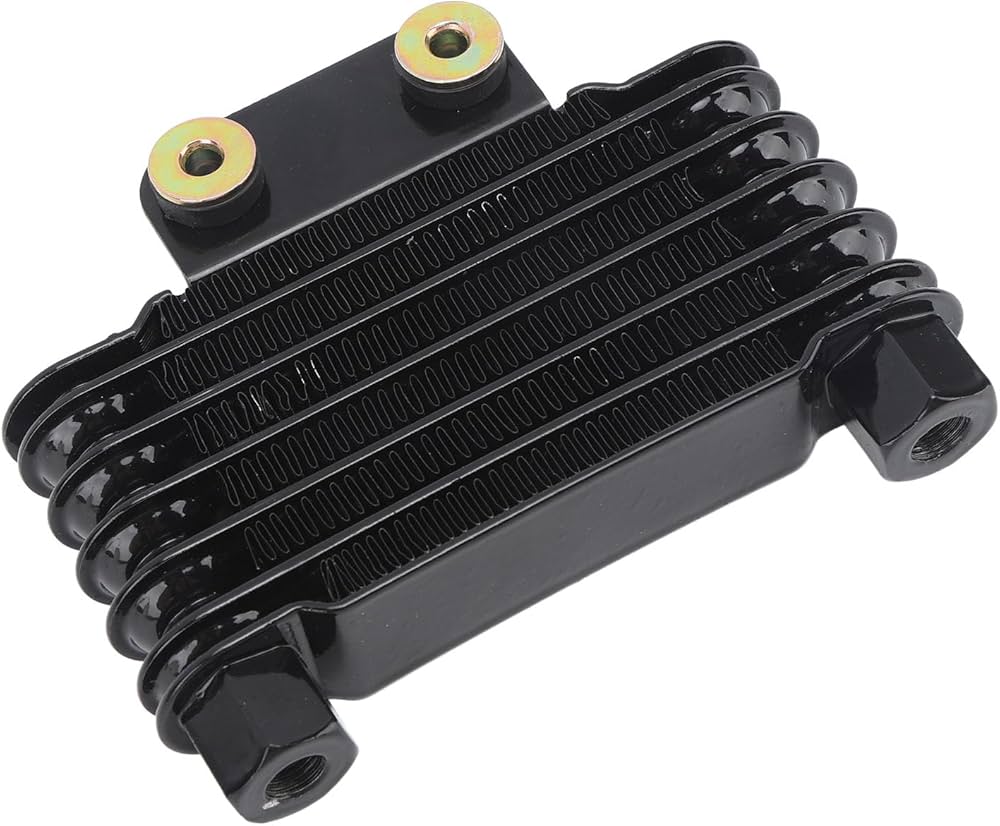Introduction
Reliable oil coolers are essential components in systems where oil is used for lubrication, hydraulic power transmission, or as a cooling medium. These coolers ensure that oil remains at a safe operating temperature, which is crucial to maintaining equipment efficiency, reducing wear and tear, and preventing thermal breakdown of the oil itself.
In demanding industries such as manufacturing, marine, construction, and power generation, machinery runs continuously under heavy load and heat stress. Without proper oil cooling, the system is vulnerable to overheating, component failure, and reduced lubrication efficiency. A reliable oil cooler ensures consistent performance even under fluctuating pressures, temperatures, and challenging environmental conditions.
Key Features of Reliable Oil Coolers:
- High Heat Transfer Efficiency
These oil coolers are engineered to remove heat rapidly and consistently, helping the oil maintain optimal viscosity. This ensures lubrication and hydraulic performance even under full system load. - Durable Material Construction
Built using high-grade materials such as stainless steel, copper, aluminum, or brass, which resist corrosion, pressure fluctuations, and mechanical fatigue over time. - Design Versatility
Available in multiple configurations including shell and tube, plate type, air-cooled, and water-cooled systems to fit various industries and space constraints. - Corrosion Protection
Surface treatments or material selection resist corrosion from water, chemicals, and environmental conditions—critical for marine and offshore uses. - Thermal Shock Resistance
Reliable oil coolers are designed to handle sudden changes in temperature without cracking, expanding, or leaking, ensuring stable performance. - Leak-Proof Construction
Units are rigorously pressure tested to ensure 100% leak-free operation, avoiding contamination or fluid loss.
Benefits of Using a Reliable Oil Cooler:
- Protects Oil Integrity
Maintains the ideal temperature range to prevent oil breakdown, preserving its chemical stability and lubricating properties. - Prevents Machinery Overheating
Efficient heat removal keeps engines, hydraulic pumps, and gearboxes running within safe thermal limits, reducing breakdowns. - Reduces Equipment Wear
Stable oil temperatures prevent metal-to-metal contact, minimizing internal wear and extending the lifespan of moving components. - Improves Energy Efficiency
Well-cooled oil ensures smoother machine operation, requiring less energy to move mechanical parts and reducing the load on pumps and motors. - Minimizes Downtime
A reliable oil cooler means fewer unexpected failures and reduced maintenance interruptions—especially important for 24/7 operations. - Enhances Safety
By preventing oil from reaching flashpoint temperatures, oil coolers reduce the risk of fires and high-temperature hazards.
Applications of Reliable Oil Coolers:
Reliable oil coolers are used across various industries and applications, especially where hydraulic or lubricating oil is exposed to high thermal loads. Some common and critical applications include:
- Hydraulic Power Packs: To cool hydraulic oil used in presses, lifts, and machinery.
- Gearboxes & Transmissions: Ensures gear oil remains at optimal viscosity and protects against gear pitting and wear.
- Marine Engines: Maintains lubrication and cooling of large ship engines and auxiliary systems.
- Industrial Machinery: Protects continuous production equipment from thermal stress.
- Construction Equipment: Keeps hydraulic oil at safe temperatures in excavators, loaders, and cranes.
- Air Compressors: Ensures lubricating oil stays within temperature limits to prevent carbon deposits and compressor failure.
- Wind Turbines: Cools gear oil in the nacelle where temperature can rise due to friction and power generation.
- CNC Machines & Injection Molding: Maintains oil temperature for precise hydraulic or spindle performance.
Types of Reliable Oil Coolers:
Understanding the type of oil cooler required is critical for matching the system’s needs and ensuring maximum performance. Common types include:
- Air-Cooled Oil Coolers
- Use ambient air and fans to cool hot oil.
- Ideal for mobile equipment and areas with limited water availability.
- Low maintenance and easy to install.
- Water-Cooled Oil Coolers
- Use cold water (from a closed-loop or cooling tower) to cool the oil.
- High efficiency and compact.
- Preferred in indoor or water-rich industrial setups.
- Shell and Tube Oil Coolers
- Use a bundle of tubes inside a cylindrical shell.
- Robust and capable of handling high pressures and flow rates.
- Widely used in marine, industrial, and power plant applications.
Technical Points
- Operating Pressure Range: Up to 35 bar (varies by design)
- Operating Temperature Range: -20°C to 150°C or higher
- Flow Rate Capacity: Ranges from 5 LPM to 1000+ LPM
- Mounting Options: Inline, remote, or base-mounted
- Safety Options: Built-in pressure relief valves or temperature indicators
Conclusion
Reliable oil coolers are not just optional components—they are essential to the health and performance of any system relying on oil for lubrication, power transmission, or cooling. From industrial manufacturing lines to marine engines and hydraulic presses, the consistent regulation of oil temperature plays a critical role in maximizing efficiency, reducing wear, and extending equipment life.
Choosing a dependable oil cooler means investing in long-term operational stability, lower maintenance costs, and safer working conditions. Whether your application demands an air-cooled, water-cooled, or compact plate-type solution, the right oil cooler ensures your machinery operates smoothly—even under extreme workloads and environmental conditions.

